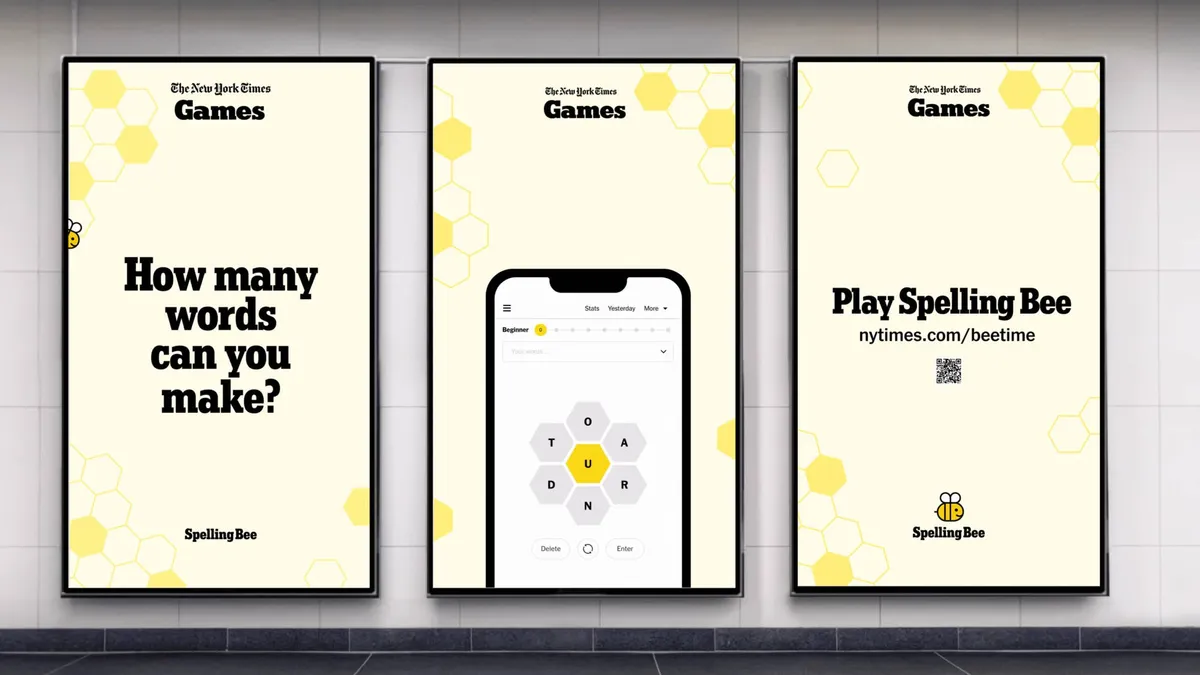Dive Brief:
- The New York Times’ games division is running a digital out-of-home (OOH) campaign on subway trains and platforms in New York City to promote its Spelling Bee title, according to an announcement.
- The effort features QR codes that take players to the daily Spelling Bee, along with giving hints and tips to solve the puzzle. For every person who shares a “Genius” or “Queen Bee” status using the hashtag #beetime and tagging @nytgames, the company will donate $1 (up to $500,000) to First Book, which distributes educational resources to those in need.
- The New York Times’ games, some of which are only available through a subscription, have become a key revenue and engagement source as mobile gaming explodes in popularity and profitability.
Dive Insight:
With New York City workers returning to the office — at least some of the time — the opportunity to increase engagement is ticking up. New York Times Games aims to make the commute a little more interesting with a new campaign centered on its Spelling Bee puzzle game that asks players to make as many words as possible using seven letters.
The return to commuting provides an opportunity to reach a captive audience of business people and students with extra time on their hands. Enabling easy access to The New York Times daily games is a simple way to increase engagement with one of the company’s most popular features and potentially drive subscriptions. The publisher is also tying a user-generated content component of the campaign to a charitable cause.
According to a new study from Outfront, a partner of the Times, nearly three-quarters (72%) of New York City’s corporate office workers are back in the office either full-time or following a hybrid schedule. In addition, subway ridership has rebounded to 83% of pre-pandemic levels.
As an example of gaming’s value to the company, the Times purchased the popular game Wordle in January for an amount disclosed as “in the low seven figures.” In a later earnings report, the publisher said the game brought an “unprecedented tens of millions of new users” and drove the best quarter of net new subscribers to its Games offering.
Many of the games, including Spelling Bee, Letter Boxed, Tiles and Vertex, are available only through a special subscription. At $5 a month (or $40 a year) and distinct from the company’s traditional digital news subscription, the Games section has proven to be a reliable revenue source for the company.
While other games such as Wordle are currently free to non-subscribers, it’s possible those will find their way behind the paywall at some point. Wordle this week started running ads on its desktop version, with luggage marketer Rimowa the debut sponsor.














